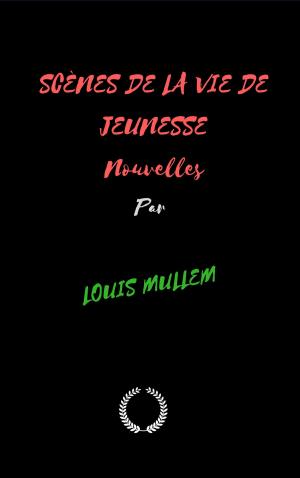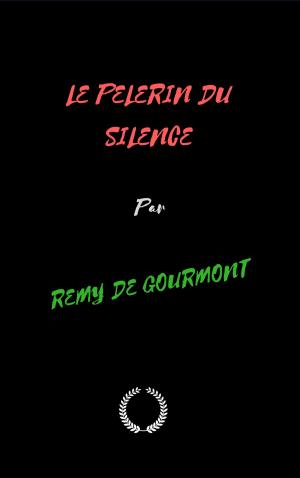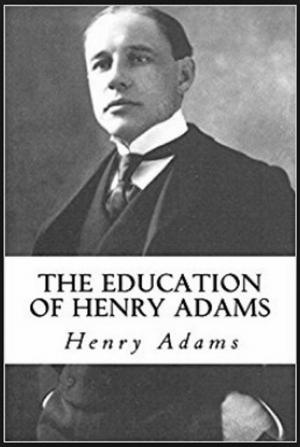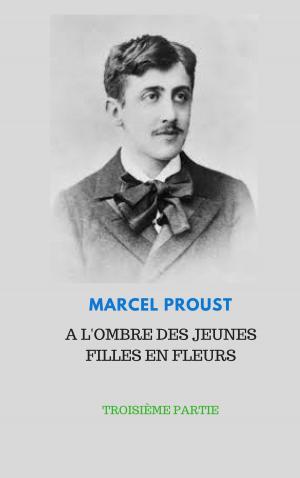| Author: | J. SHERIDAN LE FANU | ISBN: | 1230002425788 |
| Publisher: | Jwarlal | Publication: | July 13, 2018 |
| Imprint: | Language: | English |
| Author: | J. SHERIDAN LE FANU |
| ISBN: | 1230002425788 |
| Publisher: | Jwarlal |
| Publication: | July 13, 2018 |
| Imprint: | |
| Language: | English |
Lady Rochdale resided in a handsome mansion at the north side of Dublin, and Captain Barton’s lodgings, as we have already said, were situated at the south. The distance intervening was considerable, and it was Captain Barton’s habit generally to walk home without an attendant, as often as he passed the evening with the old lady and her fair charge. His shortest way in such nocturnal walks lay, for a considerable space, through a line of streets which had as yet been merely laid out, and little more than the foundations of the houses constructed. One night, shortly after his engagement with Miss Montague had commenced, he happened to remain unusually late, in company only with her and Lady Rochdale. The conversation had turned upon the evidences of revelation, which he had disputed with the callous scepticism of a confirmed infidel. What were called “French principles” had, in those days, found their way a good deal into fashionable society, especially that portion of it which professed allegiance to Whiggism, and neither the old lady nor her charge was so perfectly free from the taint as to look upon Captain Barton’s views as any serious objection to the proposed union. The discussion had degenerated into one upon the supernatural and the marvellous, in which he had pursued precisely the same line of argument and ridicule. In all this, it is but true to state, Captain Barton was guilty of no affectation; the doctrines upon which he insisted were, in reality, but too truly the basis of his own fixed belief, if so it might be called; and perhaps not the least strange of the many strange circumstances connected with this narrative, was the fact that the subject of the fearful influences we are about to describe was himself, from the deliberate conviction of years, an utter disbeliever in what are usually termed preternatural agencies.
It was considerably past midnight when Mr. Barton took his leave, and set out upon his solitary walk homeward. He rapidly reached the lonely road, with its unfinished dwarf walls tracing the foundations of the projected rows of houses on either side. The moon was shining mistily, and its imperfect light made the road he trod but additionally dreary; that utter silence, which has in it something indefinably exciting, reigned there, and made the sound of his steps, which alone broke it, unnaturally loud and distinct. He had proceeded thus some way, when on a sudden he heard other footsteps, pattering at a measured pace, and, as it seemed, about two score steps behind him. The suspicion of being dogged is at all times unpleasant; it is, however, especially so in a spot so desolate and lonely: and this suspicion became so strong in the mind of Captain Barton, that he abruptly turned about to confront his pursuers, but, though there was quite sufficient moonlight to disclose any object upon the road he had traversed, no form of any kind was visible.
The steps he had heard could not have been the reverberation of his own, for he stamped his foot upon the ground, and walked briskly up and down, in the vain attempt to wake an echo. Though by no means a fanciful person, he was at last compelled to charge the sounds upon his imagination, and treat them as an illusion. Thus satisfying himself, he resumed his walk, and before he had proceeded a dozen paces, the mysterious footfalls were again audible from behind, and this time, as if with the special design of showing that the sounds were not the responses of an echo, the steps sometimes slackened nearly to a halt, and sometimes hurried for six or eight strides to a run, and again abated to a walk.
Lady Rochdale resided in a handsome mansion at the north side of Dublin, and Captain Barton’s lodgings, as we have already said, were situated at the south. The distance intervening was considerable, and it was Captain Barton’s habit generally to walk home without an attendant, as often as he passed the evening with the old lady and her fair charge. His shortest way in such nocturnal walks lay, for a considerable space, through a line of streets which had as yet been merely laid out, and little more than the foundations of the houses constructed. One night, shortly after his engagement with Miss Montague had commenced, he happened to remain unusually late, in company only with her and Lady Rochdale. The conversation had turned upon the evidences of revelation, which he had disputed with the callous scepticism of a confirmed infidel. What were called “French principles” had, in those days, found their way a good deal into fashionable society, especially that portion of it which professed allegiance to Whiggism, and neither the old lady nor her charge was so perfectly free from the taint as to look upon Captain Barton’s views as any serious objection to the proposed union. The discussion had degenerated into one upon the supernatural and the marvellous, in which he had pursued precisely the same line of argument and ridicule. In all this, it is but true to state, Captain Barton was guilty of no affectation; the doctrines upon which he insisted were, in reality, but too truly the basis of his own fixed belief, if so it might be called; and perhaps not the least strange of the many strange circumstances connected with this narrative, was the fact that the subject of the fearful influences we are about to describe was himself, from the deliberate conviction of years, an utter disbeliever in what are usually termed preternatural agencies.
It was considerably past midnight when Mr. Barton took his leave, and set out upon his solitary walk homeward. He rapidly reached the lonely road, with its unfinished dwarf walls tracing the foundations of the projected rows of houses on either side. The moon was shining mistily, and its imperfect light made the road he trod but additionally dreary; that utter silence, which has in it something indefinably exciting, reigned there, and made the sound of his steps, which alone broke it, unnaturally loud and distinct. He had proceeded thus some way, when on a sudden he heard other footsteps, pattering at a measured pace, and, as it seemed, about two score steps behind him. The suspicion of being dogged is at all times unpleasant; it is, however, especially so in a spot so desolate and lonely: and this suspicion became so strong in the mind of Captain Barton, that he abruptly turned about to confront his pursuers, but, though there was quite sufficient moonlight to disclose any object upon the road he had traversed, no form of any kind was visible.
The steps he had heard could not have been the reverberation of his own, for he stamped his foot upon the ground, and walked briskly up and down, in the vain attempt to wake an echo. Though by no means a fanciful person, he was at last compelled to charge the sounds upon his imagination, and treat them as an illusion. Thus satisfying himself, he resumed his walk, and before he had proceeded a dozen paces, the mysterious footfalls were again audible from behind, and this time, as if with the special design of showing that the sounds were not the responses of an echo, the steps sometimes slackened nearly to a halt, and sometimes hurried for six or eight strides to a run, and again abated to a walk.















